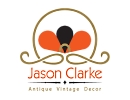Contact Seller
Jason Clarke Antiques
Tel07815 046645Please quote Antiques Atlas.


 PISTOL ( THE PERFECTA ) .22 Starting pistol
PISTOL ( THE PERFECTA ) .22 Starting pistol
 PISTOL BREVETTA 1949 MODEL .22 Starting pistol
PISTOL BREVETTA 1949 MODEL .22 Starting pistol
 Gun Case With Tools Country Oak 1900
Gun Case With Tools Country Oak 1900
 Webley sprint boxed Starting pistol mint
Webley sprint boxed Starting pistol mint
 World War 2 German MP40 Machine Gun deactivated
World War 2 German MP40 Machine Gun deactivated
 Flintlock Pistol Russian, Napoleonic Era.
Flintlock Pistol Russian, Napoleonic Era.
 Antique Leather Gun Case + Key Holland & Holland
Antique Leather Gun Case + Key Holland & Holland
 Starting Pistol Em-ge .22 Blank Firing
Starting Pistol Em-ge .22 Blank Firing
 Early James Purdey English Double Gun Case 1830
Early James Purdey English Double Gun Case 1830
 Ottoman Empire Flintlock Blunderbuss
Ottoman Empire Flintlock Blunderbuss
 Percussion Cap Pistol. Early 19th Century.
Percussion Cap Pistol. Early 19th Century.
 Percussion Cap Pistol by Tatham & Egg.
Percussion Cap Pistol by Tatham & Egg.
Non UK callers :
+44 7815 046645
Flintlock Duelling Pistols by Charles Moore London


A pair of early nineteenth century flintlock duelling pistols by Charles Moore, London.
With walnut stocks and horn fore end caps, the pistols have steel antique furniture throughout including trigger guards engraved with stylised pineapple motifs and ramrod pipes. Both original ramrods remain intact and are comprised of walnut shafts tipped with horn and with steel mounts to the back.
The flush fitting lock plate with safety mechanism and trigger are further engraved with foliate design and bear the maker’s name of C. Moore. The octagonal barrels are fitted with fore and back sight and are also engraved with the maker’s name, C. Moore, London.
Charles Moore was a highly successful gunmaker of the early nineteenth century. Born in 1791, he was listed in London from 1821 and traded from various addresses including, 2 Regent’s Circus (later Picadilly), 34 Regents Street and later at later at 77 St James Street. By 1829 he halready had links with the Royal Family, refurbishing guns housed at Hampton Court and St James Palace and by 1836 was appointed as gunmaker in ordinary to William IV.
The company had a testing range at Kensington Gravel Pits during the 1830’s and were successful enough to have opened a second premises in Paris at 25 Rue Tronchet which was managed by Moore’s son William. In the New Sporting Magazine of 1837, a reporter writes, “I looked into the shop of Moore, the gunmaker, son of Mr Charles Moore of St James St, London, who appears to be doing a good stroke of business in Paris for independently of game shooting, the prevalent fashion of pigeon shooting is pursued, with much spirit, at the Tivoli Gardens in Paris, kept by Mons Byron, Editor of the French Racing Calender. Thirty and thrity five yard matches as they are called, are common with Mr Moore’s widely bored English guns.”
Moore is further mentioned in Peter Hawker’s famous book, ‘Instructions to Young Sportsmen in All That Relates to Guns & Shooting’ under a list of recommended gunmakers of the period.
The company later became Moore & Woodward in 1843 after Moore went into partnership with his apprentice, James Woodward. This was likely due to the fact that his son William had predeceased him and Moore had no one to take over the family business. Charles Moore died shortly after in 1848 and James Woodward eventually changed the name James Woodward & Sons and continued to trade until 1949 whereafter it was sold to James Purdey & Sons.
SellerJason Clarke Antiques
View all stock from
Jason Clarke Antiques

 Private dealer
Private dealer
By appointment only
Newbury
Berkshire
Tel : 07815 046645
Non UK callers : +44 7815 046645
With walnut stocks and horn fore end caps, the pistols have steel antique furniture throughout including trigger guards engraved with stylised pineapple motifs and ramrod pipes. Both original ramrods remain intact and are comprised of walnut shafts tipped with horn and with steel mounts to the back.
The flush fitting lock plate with safety mechanism and trigger are further engraved with foliate design and bear the maker’s name of C. Moore. The octagonal barrels are fitted with fore and back sight and are also engraved with the maker’s name, C. Moore, London.
Charles Moore was a highly successful gunmaker of the early nineteenth century. Born in 1791, he was listed in London from 1821 and traded from various addresses including, 2 Regent’s Circus (later Picadilly), 34 Regents Street and later at later at 77 St James Street. By 1829 he halready had links with the Royal Family, refurbishing guns housed at Hampton Court and St James Palace and by 1836 was appointed as gunmaker in ordinary to William IV.
The company had a testing range at Kensington Gravel Pits during the 1830’s and were successful enough to have opened a second premises in Paris at 25 Rue Tronchet which was managed by Moore’s son William. In the New Sporting Magazine of 1837, a reporter writes, “I looked into the shop of Moore, the gunmaker, son of Mr Charles Moore of St James St, London, who appears to be doing a good stroke of business in Paris for independently of game shooting, the prevalent fashion of pigeon shooting is pursued, with much spirit, at the Tivoli Gardens in Paris, kept by Mons Byron, Editor of the French Racing Calender. Thirty and thrity five yard matches as they are called, are common with Mr Moore’s widely bored English guns.”
Moore is further mentioned in Peter Hawker’s famous book, ‘Instructions to Young Sportsmen in All That Relates to Guns & Shooting’ under a list of recommended gunmakers of the period.
The company later became Moore & Woodward in 1843 after Moore went into partnership with his apprentice, James Woodward. This was likely due to the fact that his son William had predeceased him and Moore had no one to take over the family business. Charles Moore died shortly after in 1848 and James Woodward eventually changed the name James Woodward & Sons and continued to trade until 1949 whereafter it was sold to James Purdey & Sons.
Price The price has been listed in British Pounds.
Conversion rates as of 9/JAN/2025. Euro & Dollar prices will vary and should only be used as a guide.
Always confirm final price with dealer. Sold
Category Antique Arms and Militaria
Period Early 19th Century Antiques
Material Walnut
Origin English
Item code as542a299
Status Sold
£0 
$0.00 
€0.00 

$

€

Conversion rates as of 9/JAN/2025. Euro & Dollar prices will vary and should only be used as a guide.
Always confirm final price with dealer. Sold
View all stock from
Jason Clarke Antiques

 Private dealer
Private dealerBy appointment only
Newbury
Berkshire
Tel : 07815 046645
Non UK callers : +44 7815 046645
You may also be interested in
 PISTOL ( THE PERFECTA ) .22 Starting pistol
PISTOL ( THE PERFECTA ) .22 Starting pistol
 PISTOL BREVETTA 1949 MODEL .22 Starting pistol
PISTOL BREVETTA 1949 MODEL .22 Starting pistol
 Gun Case With Tools Country Oak 1900
Gun Case With Tools Country Oak 1900
 Webley sprint boxed Starting pistol mint
Webley sprint boxed Starting pistol mint
 World War 2 German MP40 Machine Gun deactivated
World War 2 German MP40 Machine Gun deactivated
 Flintlock Pistol Russian, Napoleonic Era.
Flintlock Pistol Russian, Napoleonic Era.
 Antique Leather Gun Case + Key Holland & Holland
Antique Leather Gun Case + Key Holland & Holland
 Starting Pistol Em-ge .22 Blank Firing
Starting Pistol Em-ge .22 Blank Firing
 Early James Purdey English Double Gun Case 1830
Early James Purdey English Double Gun Case 1830
 Ottoman Empire Flintlock Blunderbuss
Ottoman Empire Flintlock Blunderbuss
 Percussion Cap Pistol. Early 19th Century.
Percussion Cap Pistol. Early 19th Century.
 Percussion Cap Pistol by Tatham & Egg.
Percussion Cap Pistol by Tatham & Egg.







